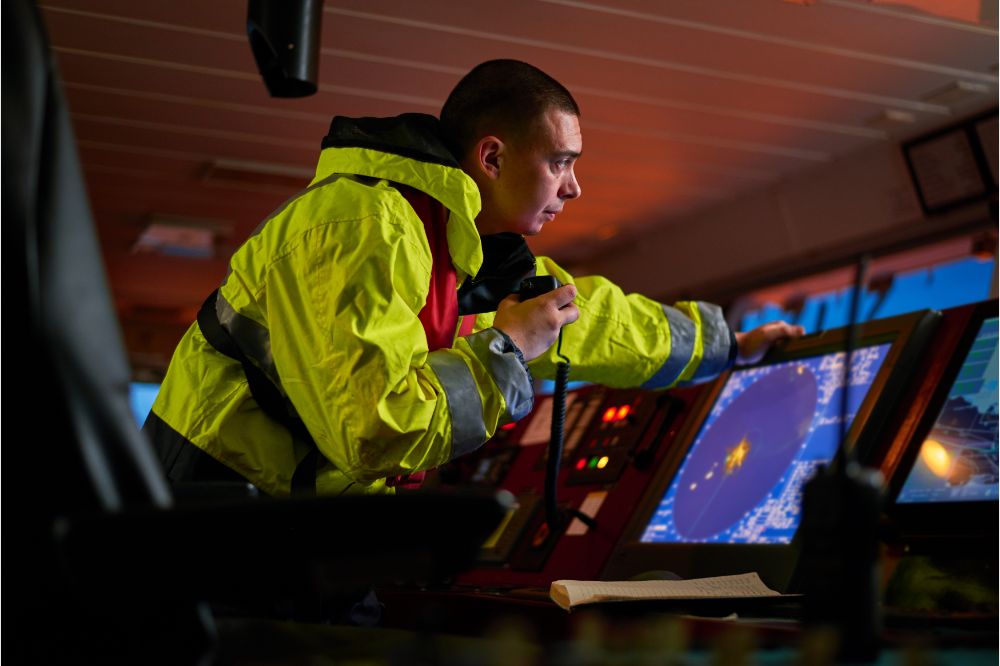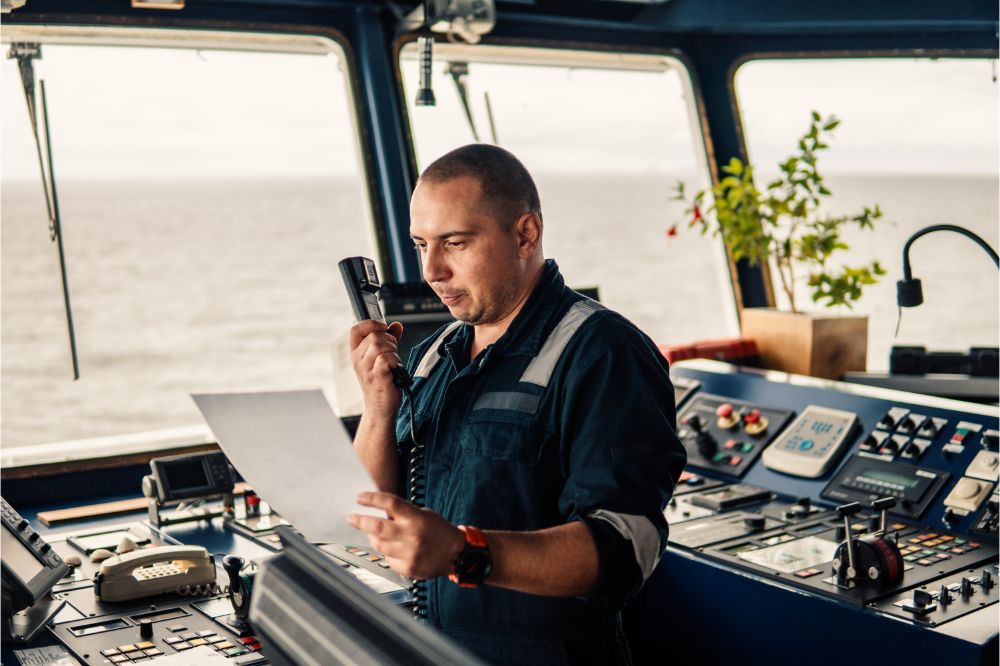The ocean is dangerous and the waters can often be unpredictable, despite years of experience. Radio is an invaluable asset for any mariner who is going out onto the water and is a tool that can help solve several emergencies. Do I need a VHF marine radio license?
Using a VHF marine radio, you will have access to a two-way radio transceiver system that is used worldwide. This article will highlight the importance of the VHF marine radio, the different types of radios available, what you should look for in radio, and more information to do with VHF marine radios in general.
The Importance of VHF Marine Radios
Any experienced mariner will tell you how important having a working and reliable radio system is. As we said, going out into the waters can be dangerous and emergencies can happen at any time, as the world out there can be unpredictable. Having a VHF marine radio set up that you can rely on in those times of emergency can potentially save your life, getting you out of a sticky situation.
More specifically, you can use a VHF marine radio to communicate and call out to the harbor or marina, contact rescue services if need be, or maintain communication between ship-to-ship and ship-to-shore.
The Different Types of VHF Marine Radios
There are two different varieties of VHF marine radios, handheld radios, and panel-mounted radios. The difference between the two is quite apparent, and your choice between the two is primarily based on your circumstances and what you can afford.
Handheld radios are, understandably, smaller and able to be held in your hand, making them portable. This portability is helpful, but there are several challenges that handheld radios face, namely their smaller range and reliance on an external battery source. This means you may need an emergency backup power source in case the battery in the radio fails. These are used mainly by smaller crews or boats and ships with a built-in battery or the space to allow for such a battery.
Fixed, panel-mounted radios are the bigger sibling to handheld radios. These larger radio systems are permanent installations on the vessel and are the ideal radio system to use. These are more powerful, offering a greater range that is far more reliable.
Of course, because of the size and the permanent installation, you will require a fixed power supply, which adds to the cost and requires additional space. However, the external antenna and the reliable power supply means you will always have a dependable method of communication, which you’ll want for your time out on the water.

What to Look For in a VHF Marine Radio
When it comes to finding the right VHF marine radio, there are a handful of features you should always be on the lookout for. You can consider these essentials, more or less, and they will often be the hallmark of good quality radio.
One of the first features you’ll want to look for is ease of use. You’ll want to familiarize yourself with your radio system as soon as possible. If your system is too confusing to navigate and use, then it means that reaching out with a message can be unnecessarily delayed or miscommunicated.
Secondly, while it may be pretty obvious, you’ll want to get a system that is as waterproof as possible. Not every system is 100% waterproof, and don’t let all the different percentages confuse you. If you can get a system that can survive being submerged underwater (IPX7), then you’re golden.
Buoyancy is also essential when considering a radio system. In the worst-case scenario of you capsizing and going entirely underwater, then having a buoyant system can make finding it much easier. Additionally, if you were to drop it accidentally, it should float right back to the surface to make retrieving it easier.
Finally, if your radio system is ATIS programmable, you’ll be able to communicate while abroad, making traveling to a different continent much safer in regards to your communications. You can discuss this with your supplier and have them help set it up. By extension, a dual or tri-watch can help you when scanning for channels that will facilitate communication much more easily.
VHF Marine Radio License
When considering a VHF marine radio, you’ll also have to ensure you have a license to use said radio. Regardless of the type of radio you get, you will still need a license. Depending on the radio you get, and how you use it, you may need a specific license type.
At the very least, you will need a Ship’s VHF Licence. This type of license will authorize you to use two-way communications between other vessels, aircraft, onshore stations, and other marinas. This license entitles you to use specific frequencies within the International Maritime Band.
Handheld VHF radios require an additional, special license that will allow you to use the radio to make VHF and DSC calls from a device that is not permanently fitted to a vessel. Your license number will be checked every 10 years and will start with the letter ‘T.’ Be aware that the license is regional and will not extend beyond specific locations.
An Operators Licence will also be required most of the time, in addition to the Ship’s Radio Licence. These come in several certificates of competence that will certify you to use different types of equipment.
Finally, two more forms of certification may be required. These are the SRC and the LRC, or the Short Range Certificate and the Long Range Certificate. By taking and passing an exam, you can become certified to operate radio equipment.
The SRC authorizes you to use VHF equipment and is the one you will likely need for your standard system. An LRC is required to operate MF/HF/VHF equipment on any vessel required to fit the Global Maritime Distress and Safety System. If you are using any more extensive system on a larger vessel, the LRC may be the way to go.

